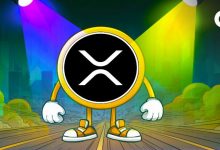The Impact of VeChain’s Revolutionary Marketplace-as-a-Service Platform

- VeChain introduces groundbreaking Marketplace-as-a-Service platform for asset tokenization.
- Partnership with Gresini Racing signifies enterprise adoption of VeChain’s innovative technology.
- VeChain’s NFC-enabled “phygitals” revolutionize real-world asset management and trading.
In a groundbreaking move, VeChain has unveiled its much-anticipated Marketplace-as-a-Service (MaaS) platform, heralding a new era in digital asset management. This innovative platform offers a no-code solution, empowering both businesses and individuals to create NFT marketplaces for digital and physical products.
8/ That’s a wrap for today’s Alpha-packed thread! 🚀
If you like this thread:
– Give us ❤️
– Retweet to share the knowledge
– and follow us @CryptoBusy for more! https://t.co/2Bk9joeCeW— CryptoBusy (@CryptoBusy) March 27, 2024
More significantly, it facilitates the tokenization of real-world assets, a game-changing development for the blockchain industry. To mark the launch of MaaS, VeChain has secured a partnership with Gresini Racing, an Italian MotoGP team, in collaboration with ExPlus, making them the premier enterprise user of this cutting-edge marketplace technology.
VeChain’s MaaS platform incorporates NFC technology to introduce “phygitals,” seamlessly blending digital identities with physical products through chips and NFTs. This integration opens up endless possibilities for asset tokenization, revolutionizing how real-world assets are managed and traded.
The intersection of businesses, brands, and heavyweight investors like BlackRock entering the Real-World Asset (RWA) sector signals a significant shift in the industry landscape. BlackRock’s endorsement of digital products as the future aligns with VeChain’s mission to facilitate blockchain adoption through user-friendly solutions, catering to non-web3 companies.
Looking forward, VeChain’s VORJ platform continues to empower developers and businesses with its no-code development environment, enabling the creation of digital assets without the need for coding expertise or significant costs.
In response to these developments, market watchers have identified VeChain (VET) as a key player in the sustainability and RWA sector, while Ethereum (ETH) gains attention as a commodity following regulatory scrutiny. With BlackRock’s adoption of Ethereum-powered tokenization platforms for its liquidity fund, the spotlight shines brighter on liquidity RWA coins, hinting at a transformative future for blockchain-based assets.




 Bitcoin
Bitcoin  Ethereum
Ethereum  Tether
Tether  Dogecoin
Dogecoin  USDC
USDC  Cardano
Cardano  TRON
TRON  Chainlink
Chainlink  Hedera
Hedera  Stellar
Stellar  Bitcoin Cash
Bitcoin Cash  LEO Token
LEO Token  Litecoin
Litecoin  Cronos
Cronos  Ethereum Classic
Ethereum Classic  Monero
Monero  Dai
Dai  Algorand
Algorand  OKB
OKB  Cosmos Hub
Cosmos Hub  Stacks
Stacks  Theta Network
Theta Network  Gate
Gate  Maker
Maker  Tezos
Tezos  KuCoin
KuCoin  IOTA
IOTA  Zcash
Zcash  NEO
NEO  Polygon
Polygon  Synthetix Network
Synthetix Network  Tether Gold
Tether Gold  TrueUSD
TrueUSD  Dash
Dash  Holo
Holo  Zilliqa
Zilliqa  Enjin Coin
Enjin Coin  0x Protocol
0x Protocol  Basic Attention
Basic Attention  Qtum
Qtum  Siacoin
Siacoin  Ravencoin
Ravencoin  Decred
Decred  NEM
NEM  Bitcoin Gold
Bitcoin Gold  Ontology
Ontology  DigiByte
DigiByte  Nano
Nano  Status
Status  Huobi
Huobi  Hive
Hive  Waves
Waves  Lisk
Lisk  Numeraire
Numeraire  Steem
Steem  Pax Dollar
Pax Dollar  BUSD
BUSD  OMG Network
OMG Network  Ren
Ren  Bitcoin Diamond
Bitcoin Diamond